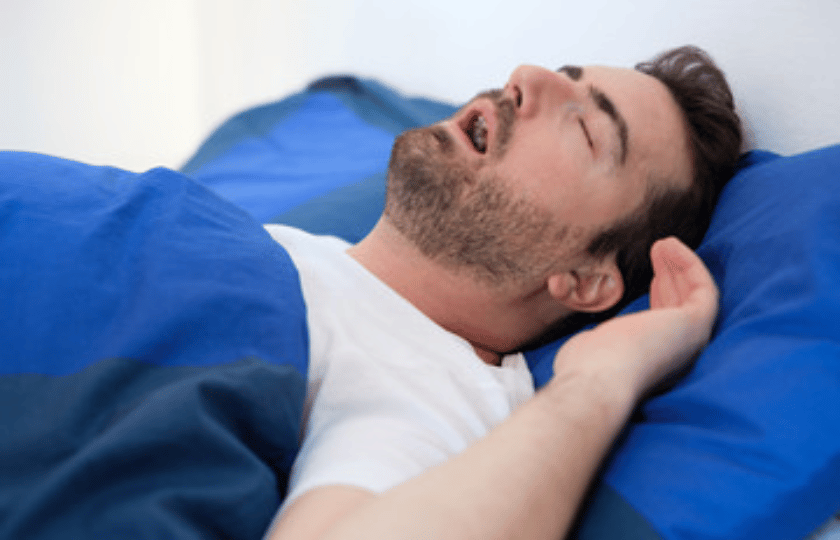Sleep apnea is a condition that affects millions of people worldwide and can have serious medical consequences. Identifying the warning signs of sleep apnea is essential to seeking treatment and getting back on the road to better health. This article will provide an overview of what sleep apnea is, its potential symptoms, what should be done if you think you may be suffering from it, and how to find help.
Sleep apnea is a potentially serious sleeping disorder in which breathing repeatedly stops and starts during the night. People who suffer from sleep apnea often experience feelings of extreme tiredness during the day, in addition to a variety of other health issues. It’s important to be aware of the warning signs of sleep apnea and take appropriate steps to receive treatment so that you can feel your best.
What is Sleep Apnea?
Sleep apnea is a condition characterized by pauses in breathing while asleep. This can lead to disturbances in sleep quality as well as loud snoring, which often wakes up people who suffer from it or those nearby them. The most common form of this disorder is Obstructive Sleep Apnea (OSA), which occurs when airways become blocked during sleep due to excessive relaxation of throat muscles. Other types of sleep apnea include central sleep apnea (CSA) and complex sleep apnea syndrome.
Symptoms of Sleep Apnea
The most common symptoms of sleep apnea are snoring, choking, or gasping sounds during sleep, witnessed pauses in breathing, and excessive daytime sleepiness even after a full night’s rest. Other less common symptoms may include insomnia, morning headaches, irritability or depression, difficulty concentrating or remembering things, and decreased libido.
What to Do if You Think You Have Sleep Apnea?
If you suspect that you have this condition, it’s important to visit your doctor for an evaluation. The doctor will likely perform a physical exam, as well as a sleep study to determine the severity of your condition. It’s important that you discuss all of your symptoms with them so they can make an accurate diagnosis.
Diagnosis and Treatment
Once you have been diagnosed, there are various treatment options available depending on the severity of your condition. These may include lifestyle changes such as avoiding alcohol or using a CPAP (Continuous Positive Airway Pressure) machine during sleep. Surgery is also an option for more serious cases, although it should be discussed with your doctor before undergoing any treatments.
Resources for People With Sleep Apnea
Many people who suffer from this disorder find comfort in joining online support groups, as well as attending in-person counseling sessions. These can provide much-needed support to those dealing with this condition, as well as help them learn ways to manage their symptoms and cope with the negative impact it can have on their life.
How to Sleep Better if You Have Sleep Apnea
In addition to seeking medical attention for sleep apnea, there are some lifestyle changes that can help improve overall sleep quality. These may include avoiding alcohol, caffeine, and large meals close to bedtime; getting regular exercise; keeping a consistent sleep schedule; and avoiding screens before going to bed.
Conclusion
Sleep apnea is a common yet serious disorder that affects millions of people around the world. It is important to be aware of the warning signs, seeks medical attention for an official diagnosis, and pursue treatments as recommended by your doctor. In addition, lifestyle changes such as avoiding screens before bedtime, avoiding alcohol or caffeine late at night, and exercising regularly can help improve overall sleep quality.
FAQs
Q: What are the most common symptoms of sleep apnea?
A: The most common symptoms include snoring, choking or gasping sounds during sleep, witnessed pauses in breathing, and excessive daytime sleepiness even after a full night’s rest. Other less common symptoms may include insomnia, morning headaches, irritability or depression, difficulty concentrating or remembering things, and decreased libido.
Q: What should I do if I think I have sleep apnea?
A: If you suspect that you have this condition, it’s important to visit your doctor for an evaluation. The doctor will likely perform a physical exam as well as a sleep study to determine the severity of your condition.
Q: How can I improve my sleep quality if I suffer from sleep apnea?
A: In addition to seeking medical attention for sleep apnea, there are some lifestyle changes that can help improve overall sleep quality. These may include avoiding alcohol, caffeine, and large meals close to bedtime; getting regular exercise; keeping a consistent sleep schedule; and avoiding screens before going to bed.

